Mao Quotes
Quotes tagged as "mao"
Showing 1-30 of 37
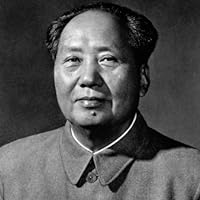
“Make criticism in good time; don't get into the habit of criticizing only after the event.”
― Selected Works
― Selected Works
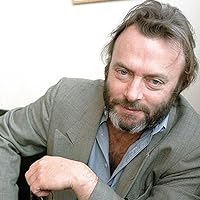
“Attempts to locate oneself within history are as natural, and as absurd, as attempts to locate oneself within astronomy. On the day that I was born, 13 April 1949, nineteen senior Nazi officials were convicted at Nuremberg, including Hitler's former envoy to the Vatican, Baron Ernst von Weizsacker, who was found guilty of planning aggression against Czechoslovakia and committing atrocities against the Jewish people. On the same day, the State of Israel celebrated its first Passover seder and the United Nations, still meeting in those days at Flushing Meadow in Queens, voted to consider the Jewish state's application for membership. In Damascus, eleven newspapers were closed by the regime of General Hosni Zayim. In America, the National Committee on Alcoholism announced an upcoming 'A-Day' under the non-uplifting slogan: 'You can drink—help the alcoholic who can't.' ('Can't'?) The International Court of Justice at The Hague ruled in favor of Britain in the Corfu Channel dispute with Albania. At the UN, Soviet Foreign Minister Andrei Gromyko denounced the newly formed NATO alliance as a tool for aggression against the USSR. The rising Chinese Communists, under a man then known to Western readership as Mao Tze-Tung, announced a limited willingness to bargain with the still-existing Chinese government in a city then known to the outside world as 'Peiping.'
All this was unknown to me as I nuzzled my mother's breast for the first time, and would certainly have happened in just the same way if I had not been born at all, or even conceived. One of the newspaper astrologists for that day addressed those whose birthday it was:
Sage counsel no doubt, which I wish I had imbibed with that same maternal lactation, but impartially offered also to the many people born on that day who were also destined to die on it.”
― Hitch 22: A Memoir
All this was unknown to me as I nuzzled my mother's breast for the first time, and would certainly have happened in just the same way if I had not been born at all, or even conceived. One of the newspaper astrologists for that day addressed those whose birthday it was:
There are powerful rays from the planet Mars, the war god, in your horoscope for your coming year, and this always means a chance to battle if you want to take it up. Try to avoid such disturbances where women relatives or friends are concerned, because the outlook for victory upon your part in such circumstances is rather dark. If you must fight, pick a man!
Sage counsel no doubt, which I wish I had imbibed with that same maternal lactation, but impartially offered also to the many people born on that day who were also destined to die on it.”
― Hitch 22: A Memoir

“I would say, if you like, that the party is like an out-moded mathematics...that is to say, the mathematics of Euclid. We need to invent a non-Euclidian mathematics with respect to political discipline.”
― The Concept of Model: An Introduction to the Materialist Epistemology of Mathematics
― The Concept of Model: An Introduction to the Materialist Epistemology of Mathematics

“We were meant to survive because of our minds' ability to reason, our ability to live with frustration in order to maintain our virtue. We wore smiling masks while dying inside.”
―
―

“They verbally attacked each other with Mao's quotations, making cynical use of his guru-like elusiveness––it was easy to select a quotation of Mao's to suit any situation, or even both sides of the same argument.”
― Wild Swans: Three Daughters of China
― Wild Swans: Three Daughters of China

“Of course, Mao made his mistakes, because everybody does, but at least he allowed working people to smoke, even in the most trying circumstances, such as when, for one reason or another, they found themselves up before the firing squad.”
―
―

“Mientras contemplaba al presidente tendido en el sarcófago de cristal, recordé la sensación de cataclismo que había tenido dos años antes al oír la noticia de su fallecimiento; el desengaño al descubrir que en el mundo no había dioses. Ni en sueños habríamos creído que el presidente Mao moriría un día, pero murió. Creíamos que si se moría el presidente Mao, sería el fin de China. Pero llevaba dos años muerto, y el país no sólo no había llegado a su fin, sino que iba mejorando paulatinamente [...]”
― Change
― Change
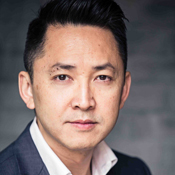
“When was the last time an American president found it worth his while to write a speech on the importance of art and literature? I cannot recall. And yet at Yan’an, Mao said that art and literature were crucial to revolution. Conversely, he warned, art and literature could also be tools of domination. Art could not be separated from politics, and politics needed art in order to reach the people where they lived, through entertaining them.”
― The Sympathizer
― The Sympathizer

“We must draw up a plan for the formation of such a corps with several million people taking up the study of dialectical materialism and historical materialism, the theoretical basis of Marxism, and combating all shades of idealism and mechanical materialism. At present there are many cadres doing theoretical work, but there is still no corps of theoretical workers, much less a powerful one. Without such a corps, the cause of the entire Party, the socialist industrialization and socialist transformation of our country, the modernization of our national defence and our research in atomic energy cannot move along or succeed. I therefore recommend that you comrades read philosophy.”
― Selected Works of Mao Tse-tung: Volume V
― Selected Works of Mao Tse-tung: Volume V

“Jung Chang said that Mao ruled by getting people to hate each other: ‘Mao had managed to turn the people into the ultimate weapon of dictatorship. That was why under him there was no real equivalent of the KGB in China. There was no need. In bringing out and nourishing the worst in people, Mao had created a moral wasteland and a land of hatred.”
― Humanity: A Moral History of the Twentieth Century
― Humanity: A Moral History of the Twentieth Century
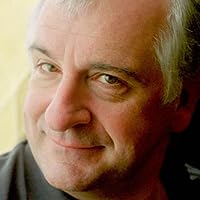
“The [Tiananmen] Gate was built during the Ming Dynasty and used by Emperors for making public appearances and proclamations. The Gate, like Tiananmen Square, has always been a major point of focus in the political history of China. If you climb up to the balcony, you can stand on the spot from which, on October 1, 1949, Chairman Mao proclamied the founding of the People's Republic of China. The spot is clearly marked, and there is an exhibition of photographs of the event clustered around it.
The view across the immensity of Tiananmen Square here is extraordinary. It is like looking across a plain from the side of a mountain. In political terms the view is more astounding yet, encompassing as it does a nation that comprises almost one-quarter of the population of this planet. All of the history of China is symbolically focused here, at this very point, and it is hard, as you stand there, not to be transfixed by the power of it. It is hard, also, not to be profoundly moved by the vision of the peasant from Shaoshan who seized that power in the name of the people and whom the people still revere, in spite of the atrocities of the Cultural Revolution, as the father of their nation.
And while we were standing on this spot, the spot where Mao stood when he proclaimed the founding of the Peoples Republic of China, the music we were having played at us by the public address system was first "Viva España", and then the "Theme from Hawaii Five-O."
It was hard to avoid the feeling that somebody, somewhere, was missing the point. I couldn't even be sure it wasn't me.”
― Last Chance to See
The view across the immensity of Tiananmen Square here is extraordinary. It is like looking across a plain from the side of a mountain. In political terms the view is more astounding yet, encompassing as it does a nation that comprises almost one-quarter of the population of this planet. All of the history of China is symbolically focused here, at this very point, and it is hard, as you stand there, not to be transfixed by the power of it. It is hard, also, not to be profoundly moved by the vision of the peasant from Shaoshan who seized that power in the name of the people and whom the people still revere, in spite of the atrocities of the Cultural Revolution, as the father of their nation.
And while we were standing on this spot, the spot where Mao stood when he proclaimed the founding of the Peoples Republic of China, the music we were having played at us by the public address system was first "Viva España", and then the "Theme from Hawaii Five-O."
It was hard to avoid the feeling that somebody, somewhere, was missing the point. I couldn't even be sure it wasn't me.”
― Last Chance to See
“Au même titre que l'on ne peut cesser d'aller son père et sa mère, nous ne pouvons enrayer notre amour pour Mao. Malgré les désillusions, les désastres et les morts, la vénération que nous lui portions atteignit même, alors, son apogée.”
― Le temps du père
― Le temps du père

“We are not utopians and cannot divorce ourselves from the actual conditions confronting us.”
― On New Democracy
― On New Democracy
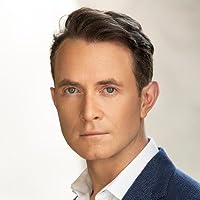
“Marx is the last or (depending on how you count it) the originating prophet. He was not just a thinker or a sage -he was the formulator of a world-revolutionary movement. A movement that claimed to know how to reorder absolutely everything in human affairs in order to arrive at a utopian society. A utopian society that has never been achieved but that activists across the West still dream of instituting next time: always next time.”
― The War on the West
― The War on the West
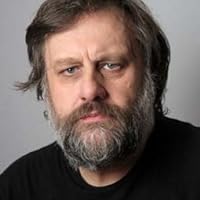
“Georgi M. Derluguian's Bourdieu's Secret Admirer in the Caucasus tells the extraordinary story of Musa Shanib from Abkhazia, the leading intellectual of this turbulent region whose incredible career passed from Soviet dissident intellectual through democratic political reformer and Muslim fundamentalist war leader up to respected professor of philosophy, his entire career marked by the strange admiration for Pierre Bourdieu's thought. There are two ways to approach such a figure. The first reaction is to dismiss it as local eccentricity, to treat it with benevolent irony - "what a strange choice, Bourdieu - who knows what this folkloric guy sees in Bourdieu...". The second reaction is to directly assert the universal scope of theory - "see how universal theory is: every intellectual from Paris to Chechenia and Abkhazia can debate his theories..." The true task, of course, is to avoid both these options and to assert the universality of a theory as the result of a hard theoretical work and struggle, a struggle that is not external to theory: the point is not (only) that Shanib had to do a lot of work to break the constraints of his local context and penetrate Bourdieu - this appropriation of Bourdieu by an Abkhazian intellectual also affects the substance of the theory itself, transposing it into a different universe. Did - mutatis mutandis - Lenin not do something similar with Marx? The shift of Mao with regard to Lenin AND Stalin concerns the relationship between the working class and peasants: both Lenin and Stalin were deeply distrustful towards the peasants, they saw as one of the main tasks of the Soviet power to break the inertia of the peasants, their substantial attachment to land, to "proletarize" them and thus fully expose them to the dynamics of modernization - in clear contrast to Mao who, in his critical notes on Stalin's Economic Problems of Socialism in the USSR (from 1958) remarked that "Stalin's point of view /.../ is almost altogether wrong. The basic error is mistrust of the peasants." The theoretical and political consequences of this shift are properly shattering: they imply no less than a thorough reworking of Marx's Hegelian notion of proletarian position as the position of "substanceless subjectivity," of those who are reduced to the abyss of their subjectivity.”
―
―

“As is well-known among those who still remember Marxism, the ambiguous central point of its theoretical edifice concerns its premise that capitalism itself creates the conditions for its self-overcoming through proletarian revolution - how are we to read this? Is it to be read in a linear evolutionary way: revolution should take place when capitalism fully develops all its potentials and exhausts all its possibilities, the mythic point at which it confronts its central antagonism ("contradiction") at its purest, in its naked form? And is it enough to add the "subjective" aspect and to emphasize that the working class should not just sit and wait for the "ripe moment," but to "educate" itself through long struggle? As is also well-known, Lenin's theory of the "weakest link of the chain" is a kind of compromise-solution: although it accepts that the first revolution can take place not in the most developed country, but in a country in which antagonisms of the capitalist development are most aggravated, even if it is less developed (Russia, which combined concentrated modern capitalist-industrial islands with agrarian backwardness and pre-democratic authoritarian government), it still perceived October Revolution as a risky break-through which can only succeed if it will be soon accompanied by a large-scale Western European revolution (all eyes were focused on Germany in this respect). The radical abandonment of this model occurred only with Mao, for whom the proletarian revolution should take place in the less developed part of the world, among the large crowds of the Third World impoverished peasants, workers and even "patriotic bourgeoisie," who are exposed to the aftershocks of the capitalist globalization, organizing their rage and despair. In a total reversal (perversion even) of the Marx's model, the class struggle is thus reformulated as the struggle between the First World "bourgeois nations" and the Third World "proletarian nations.”
―
―

“. The rather boring debate about the origins of Maoism (or Stalinism) oscillates around three main options: (1) the "hard" anti-Communists and the "hard" partisans of Stalinism claim that there is a direct immanent logic which leads from Marx to Lenin and from Lenin to Stalin (and then from Stalin to Mao); (2) the "soft" critics claim that the Stalinist (or, prior to it, Leninist) turn is one of the historical possibilities present in Marx's theoretical edifice - it could have turned otherwise, yet the Stalinist catastrophe is nonetheless inscribed as an option into the original theory itself; (3) finally, the defenders of the purity of the "original teaching of Marx" dismiss Stalinism (or already Leninism) as a simple distortion, betrayal, insisting on the radical break between the two: Lenin and Stalin simply "kidnapped" Marx's theory and used it for purposes totally at odds with Marx. One should reject all three versions as based on the same underlying linear-historicist notion of time, and opt for the fourth version, beyond the false question "to what extent was Marx responsible for the Stalinist catastrophe": Marx is fully responsible, but retroactively, i.e., the same holds for Stalin as for Kafka in Borges's famous formulation: they both created their own predecessors.”
―
―

“Part of the Maoist project was the deliberate construction of a new moral identity. To do this it was necessary to destroy people’s previous sense of who they were and to make sure there was no room for it grow back.”
― Humanity: A Moral History of the Twentieth Century
― Humanity: A Moral History of the Twentieth Century

“Świat o tym nie wiedział – i wydawał się nie chcieć wiedzieć. W 1959 roku lord Boyd Orr, pierwszy dyrektor generalny FAO, wybitny specjalista od spraw wyżywienia, ogłosił, że „rządy Mao skończyły z tradycyjnym cyklem głodu w Chinach”. Jeszcze w 1961 roku pewien dziennikarz francuski, który przeprowadził wywiad z Mao Tse-Tungiem, napisał, że „naród chiński nigdy nie był bliski głodu”. Nazwisko dziennikarza brzmiało François Mitterand.”
― El hambre
― El hambre
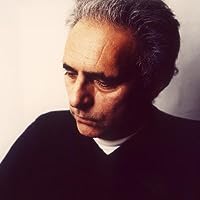
“I’m using Mao as my inspiration. “Cast away illusions. Prepare for struggle.” I’m back in business, baby. You don’t know you’re stuck until you get moving.”
― The Nothing
― The Nothing

“As it has been since the dawn of time, the light and dark are linked as one”
― Satan's Secretary, Vol. 1
― Satan's Secretary, Vol. 1
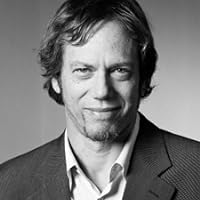
“Mao's father had valued manual work over intellect; Mao had scoffed at this as a young man, but as he grew older he unconsciously returned to his father's views and echoed such outdated ideas by forcing a whole generation of Chinese intellectuals into manual labor, a nightmarish mistake that cost his regime dearly. Remember: You are your own father. Do not let yourself spend years creating yourself only to let your guard down and allow the ghost of the past — father, habit, history — to sneak back in.”
― The 48 Laws of Power
― The 48 Laws of Power
“When we see the present machinations of the left in Washington, many are perplexed by the insincerity of its spokesmen. But actually, this is what we ought to expect. This is who they are. Honesty was not part of their training. Revolution has an altogether different ethic.”
―
―
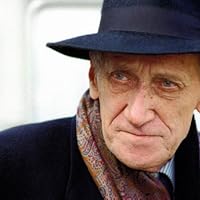
“The importance of Chinese Communism does not depend on the intellectual level of its dogmas. Mao was one of the greatest, if not the very greatest, manipulator of large masses of human beings in the twentieth century, and the ideology he used for the purpose is significant by reason of its effectiveness, not only in China but in other parts of the Third World.”
― Main Currents Of Marxism: The Founders, The Golden Age, The Breakdown
― Main Currents Of Marxism: The Founders, The Golden Age, The Breakdown
“As early as November 1966, the Red Guard Corps of Beijing Normal University had set their sights on the Confucian ancestral home in Qufu County in Shandong Province. Invoking the language of the May Fourth movement, they proceeded to Qufu, where they established themselves as the Revolutionary Rebel Liaison State to Annihilate the Old Curiosity Shop of Confucius.
Within the month they had totally destroyed the Temple of Confucius, the Kong Family Mansion, the Cemetery of Confucius (including the Master’s grave), and all the statues, steles, and relics in the area...
In January 1967 another Red Guard unit editorialized in the People’s Daily:
To struggle against Confucius, the feudal mummy, and thoroughly eradicate . . . reactionary Confucianism is one of our important tasks in the Great Cultural Revolution.
And then, to make their point, they went on a nationwide rampage, destroying temples, statues, historical landmarks, texts, and anything at all to do with the ancient Sage...
The Cultural Revolution came to an end with Mao’s death in 1976. In 1978 Deng Xiaoping (1904–97) became China’s paramount leader, setting China on a course of economic and political reform, and effectively bringing an end to the Maoist ideal of class conflict and perpetual revolution. Since 2000, the leadership in Beijing, eager to advance economic prosperity and promote social stability, has talked not of the need for class conflict but of the goal of achieving a “harmonious society,” citing approvingly the passage from the Analects, “harmony is something to be cherished” (1.12).
The Confucius compound in Qufu has been renovated and is now the site of annual celebrations of Confucius’s birthday in late September. In recent years, colleges and universities throughout the country—Beijing University, Qufu Normal University, Renmin University, Shaanxi Normal University, and Shandong University, to name a few—have established Confucian study and research centers. And, in the opening ceremonies of the 2008 Olympics, the Beijing Olympic Committee welcomed guests from around the world to Beijing with salutations from the Analects, “Is it not a joy to have friends come from afar?” and “Within the fours seas all men are brothers,” not with sayings from Mao’s Little Red Book.
Tellingly, when the Chinese government began funding centers to support the study of the Chinese language and culture in foreign schools and universities around the globe in 2004—a move interpreted as an ef f ort to expand China’s “soft power”—it chose to name these centers Confucius Institutes...
The failure of Marxism-Leninism has created an ideological vacuum, prompting people to seek new ways of understanding society and new sources of spiritual inspiration.
The endemic culture of greed and corruption—spawned by the economic reforms and the celebration of wealth accompanying them—has given rise to a search for a set of values that will address these social ills. And, crucially, rising nationalist sentiments have fueled a desire to fi nd meaning within the native tradition—and to of f set the malignant ef f ects of Western decadence and materialism.
Confucius has thus played a variety of roles in China’s twentieth and twenty-first centuries. At times praised, at times vilified, he has been both good guy and bad guy. Yet whether good or bad, he has always been somewhere on the stage. These days Confucius appears to be gaining favor again, in official circles and among the people. But what the future holds for him and his teachings is difficult to predict. All we can say with any certainty is that Confucius will continue to matter.”
― Confucianism: A Very Short Introduction
Within the month they had totally destroyed the Temple of Confucius, the Kong Family Mansion, the Cemetery of Confucius (including the Master’s grave), and all the statues, steles, and relics in the area...
In January 1967 another Red Guard unit editorialized in the People’s Daily:
To struggle against Confucius, the feudal mummy, and thoroughly eradicate . . . reactionary Confucianism is one of our important tasks in the Great Cultural Revolution.
And then, to make their point, they went on a nationwide rampage, destroying temples, statues, historical landmarks, texts, and anything at all to do with the ancient Sage...
The Cultural Revolution came to an end with Mao’s death in 1976. In 1978 Deng Xiaoping (1904–97) became China’s paramount leader, setting China on a course of economic and political reform, and effectively bringing an end to the Maoist ideal of class conflict and perpetual revolution. Since 2000, the leadership in Beijing, eager to advance economic prosperity and promote social stability, has talked not of the need for class conflict but of the goal of achieving a “harmonious society,” citing approvingly the passage from the Analects, “harmony is something to be cherished” (1.12).
The Confucius compound in Qufu has been renovated and is now the site of annual celebrations of Confucius’s birthday in late September. In recent years, colleges and universities throughout the country—Beijing University, Qufu Normal University, Renmin University, Shaanxi Normal University, and Shandong University, to name a few—have established Confucian study and research centers. And, in the opening ceremonies of the 2008 Olympics, the Beijing Olympic Committee welcomed guests from around the world to Beijing with salutations from the Analects, “Is it not a joy to have friends come from afar?” and “Within the fours seas all men are brothers,” not with sayings from Mao’s Little Red Book.
Tellingly, when the Chinese government began funding centers to support the study of the Chinese language and culture in foreign schools and universities around the globe in 2004—a move interpreted as an ef f ort to expand China’s “soft power”—it chose to name these centers Confucius Institutes...
The failure of Marxism-Leninism has created an ideological vacuum, prompting people to seek new ways of understanding society and new sources of spiritual inspiration.
The endemic culture of greed and corruption—spawned by the economic reforms and the celebration of wealth accompanying them—has given rise to a search for a set of values that will address these social ills. And, crucially, rising nationalist sentiments have fueled a desire to fi nd meaning within the native tradition—and to of f set the malignant ef f ects of Western decadence and materialism.
Confucius has thus played a variety of roles in China’s twentieth and twenty-first centuries. At times praised, at times vilified, he has been both good guy and bad guy. Yet whether good or bad, he has always been somewhere on the stage. These days Confucius appears to be gaining favor again, in official circles and among the people. But what the future holds for him and his teachings is difficult to predict. All we can say with any certainty is that Confucius will continue to matter.”
― Confucianism: A Very Short Introduction

“Marx is the last or (depending on how you count it) the originating prophet. He was not just a thinker or a sage -he was the formulator of a world-revolutionary movement. A movement that claimed to know how to reorder absolutely wverything in human affairs in order to arrive at a utopian society. A utopian society that has never been achieved but that activists across the West still dream of instituting next time: always next time.”
― The War on the West
― The War on the West
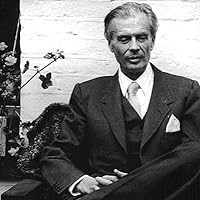
“Los mal alimentados serán siempre gobernados, desde arriba, por los bien alimentados.”
― Si mi biblioteca ardiera esta noche
― Si mi biblioteca ardiera esta noche

“…a medida que la lucha por recursos cada vez menores se recrudezca, estas dictaduras nacionales tenderán a convertirse en más y más opresivas en sus países y más cruelmente competitivas en el exterior.”
― Si mi biblioteca ardiera esta noche
― Si mi biblioteca ardiera esta noche
All Quotes
|
My Quotes
|
Add A Quote
Browse By Tag
- Love Quotes 98.5k
- Life Quotes 76.5k
- Inspirational Quotes 73.5k
- Humor Quotes 44k
- Philosophy Quotes 30k
- Inspirational Quotes Quotes 27k
- God Quotes 26.5k
- Truth Quotes 24k
- Wisdom Quotes 24k
- Romance Quotes 23.5k
- Poetry Quotes 22.5k
- Death Quotes 20k
- Life Lessons Quotes 20k
- Happiness Quotes 19k
- Quotes Quotes 18k
- Hope Quotes 18k
- Faith Quotes 18k
- Inspiration Quotes 17k
- Spirituality Quotes 15k
- Religion Quotes 15k
- Motivational Quotes 15k
- Writing Quotes 15k
- Relationships Quotes 14.5k
- Life Quotes Quotes 14.5k
- Love Quotes Quotes 14k
- Success Quotes 13.5k
- Time Quotes 12.5k
- Motivation Quotes 12.5k
- Science Quotes 11.5k
- Motivational Quotes Quotes 11.5k

